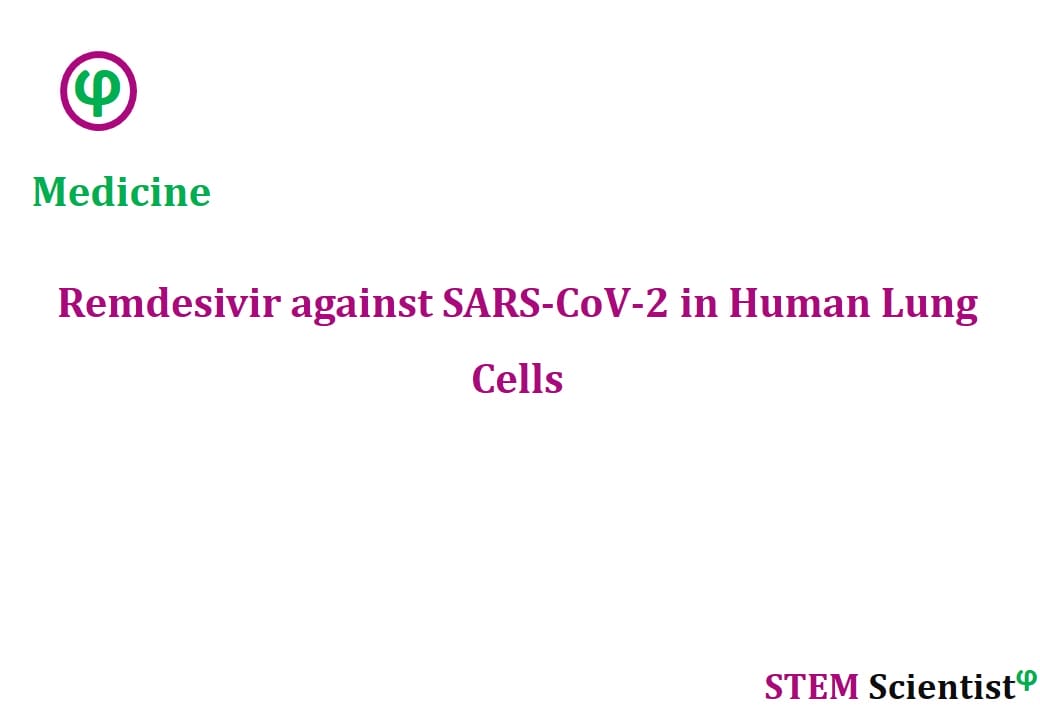
The following study was conducted by Scientists from Department of Pediatrics, Vanderbilt University Medical Center, Nashville; Vanderbilt Institute for Infection, Immunology, and Inflammation, Nashville; Department of Epidemiology, University of North Carolina at Chapel Hill, Chapel Hill; Department of Microbiology and Immunology, University of North Carolina at Chapel Hill, Chapel Hill; Gilead Sciences, Inc., Foster City; Department of Pathology, Microbiology, and Immunology, Vanderbilt University Medical Center, Nashville, USA. Study is published in Cell Reports Journal – Cell Press Publishing as detailed below.
Cell Reports Journal – Cell Press Publishing (2020)
Remdesivir Inhibits SARS-CoV-2 in Human Lung Cells and Chimeric SARS-CoV Expressing the SARS-CoV-2 RNA Polymerase in Mice
Highlights
- Remdesivir binding of active site of polymerase is conserved across all human CoVs
- Remdesivir inhibits SARS-CoV-2 in primary and continuous human lung cell cultures
- Remdesivir potency depends on cell-type-specific metabolism to its active form
- Therapeutic remdesivir reduces viral loads and improves outcomes in mice
Summary
Severe acute respiratory syndrome coronavirus 2 (SARS-CoV-2) is the causative agent of the novel viral disease COVID-19. With no approved therapies, this pandemic illustrates the urgent need for broad-spectrum antiviral countermeasures against SARS-CoV-2 and future emerging CoVs. We report that remdesivir (RDV) potently inhibits SARS-CoV-2 replication in human lung cells and primary human airway epithelial cultures (EC50 = 0.01 μM). Weaker activity is observed in Vero E6 cells (EC50 = 1.65 μM) because of their low capacity to metabolize RDV. To rapidly evaluate in vivo efficacy, we engineered a chimeric SARS-CoV encoding the viral target of RDV, the RNA-dependent RNA polymerase of SARS-CoV-2. In mice infected with the chimeric virus, therapeutic RDV administration diminishes lung viral load and improves pulmonary function compared with vehicle-treated animals. These data demonstrate that RDV is potently active against SARS-CoV-2 in vitro and in vivo, supporting its further clinical testing for treatment of COVID-19.
Source:
Cell Reports Journal – Cell Press Publishing
URL: https://www.cell.com/cell-reports/fulltext/S2211-1247(20)30921-9
Citation:
Pruijssers, A. J., A. S. George, et al. (2020). “Remdesivir Inhibits SARS-CoV-2 in Human Lung Cells and Chimeric SARS-CoV Expressing the SARS-CoV-2 RNA Polymerase in Mice.” Cell Reports 32(3).


